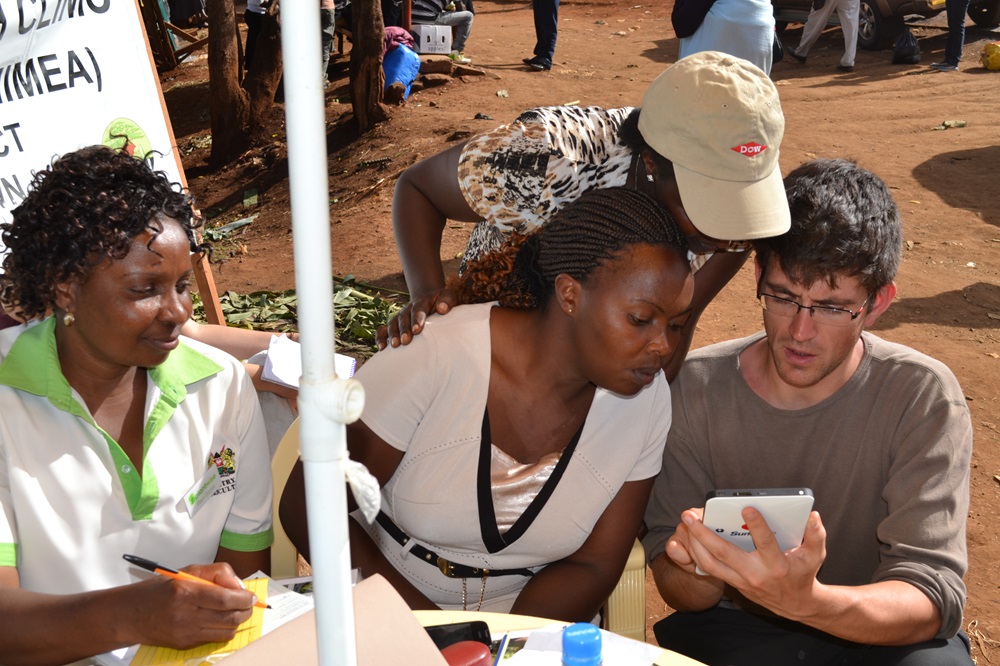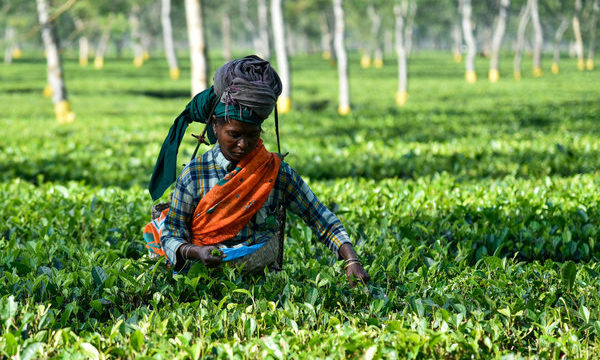
Generative AI is starting to reshape how agricultural advice is produced, shared, and used — but the shift comes with both opportunities and challenges. For smallholder farmers, agriculture advisory chatbots and AI-based diagnostic tools could offer faster, more localised, and scalable support. They are often adopted by farmers directly, whilst in the best cases they are integrated with human extension systems. But they also raise tough questions about reliability, content ownership, attribution, equity, and trust.
Through the Generative AI for Agriculture Advisory (GAIA) project, CABI has been working with IFPRI and a range of partners to explore whether AI-powered chatbots can responsibly deliver agricultural advice. While much of GAIA Phase I (the pilot stage) focused on prototyping and user testing of content sharing via chatbots — including successful trials in Kenya and India — our team also led work on something less visible but just as vital: data governance.
Here are six lessons we are taking forward as the GAIA project enters its next phase.
1. Licensing is about trust, not just terms
At the start of the project, it was clear that even among open-access-oriented partners, content licensing was patchy. What exactly could be used? Under what conditions?
CABI helped develop a flexible licensing model that:
● Protected content providers’ intellectual property (Background IPR)
● Defined clear permissions for GenAI use
● Required attribution at both system and interface levels
● Distinctly restricted commercial use without further negotiation
This framework supported the sharing of 463 expert-validated content items for chatbot development — and laid the groundwork for future trust-based models.
2. Creative Commons may not be enough
Open does not always mean usable — especially for AI model(s) training, development and refinement. More restrictive Creative Commons licences (like CC-BY-ND) prohibit modifications to content — which GenAI systems often require. Most of these licences don’t clearly address the issue of using content for AI modelling at all.
The lesson is that even open-access content needs additional clarity and negotiation, and arguably supplementary licenses specifically addressing these gaps, when it is being used for GenAI training or outputs.
3. You need internal processes, not just policies
Governance is not just about what is written into a licence — it is about how decisions are made. Having processes, including a taskforce, for decision making helped CABI ensure that licensing requests could be reviewed centrally, content was shared appropriately, and teams across the organisation understood the broader implications of AI integration.
A policy without a process cannot hold up when requests move fast.
4. Clarify who owns what — and who is liable
In GenAI projects, two kinds of intellectual property need attention:
● Background IPR: Existing content and data used to train or power the AI
● Foreground IPR: The model outputs or AI tools built using that content
Negotiating who owns what, and who is liable for what, is not optional. It is essential — especially if tools go public. Future projects will need to navigate these boundaries clearly, especially if tools are scaled or commercialised. The foreground IPR may also prove to be crucial in terms of determining legal liability for inaccurate outputs (“hallucinations”) generated by an AI system.
5. Attribution matters
To build trust in GenAI tools, users need to know where the advice comes from and where to find additional information to verify the advice. This is particularly important as chatbots are prone to hallucinate – having a citation can at least allow human oversight and review of the output which may serve as a check against inaccurate outputs. As such CABI advocates for attribution to be visible not just in background documentation, but within the chat interface itself.
6. Content sharing must be sustainable
While data may appear free, the work behind it is not. Digitising, curating, validating, and securely sharing advisory content all require time, infrastructure, and expertise. In fact, ongoing litigation, especially in the United States, has focused significantly on the issues of licenses and royalty payments for the use of proprietary content in GenAI model training and development.
As such, GenAI projects may find scaling difficult without:
● Sustainable fee models
● Cost-sharing across tools that use the same data
● Recognition that secure, structured content delivery is part of the value chain
Looking ahead – GAIA2
“GenAI holds huge promise for agriculture advisory, but without clear governance, that promise is fragile. We’re not just creating tools; we’re shaping the systems and safeguards that make those tools meaningful, usable, and fair.”— Katherine Cameron, Head of Digital Advisory Tools, CABI.
CABI is excited to participate in GAIA Phase II, which runs from April 2025 to May 2027. CABI will continue leading work on licensing, governance, and ethical guidance. With deeper research, and stronger tools, the next phase will build on what we have learned — making sure GenAI solutions are not only technically sound, but grounded in fairness, accountability, and long-term value for smallholder farmers.
We will continue sharing updates and practical tools from GAIA Phase II — and welcome collaboration with those tackling similar questions in digital agriculture.
Additional information
Main image: Agriculture advisory chatbots were piloted at plant clinics in Kenya last year (Credit: CABI).
Digital Development
Through the creation and application of digital technologies, CABI brings science-based agricultural knowledge to millions of smallholder farmers helping to increase their yields. Find out more here.
Project page
Find out more from the project page Generative AI for Agriculture Advisory.
Relevant blogs
Piloting a CABI crop health advisory chatbot
Strengthening Agricultural Advisory Services with Generative AI
1 Comment
Leave a Reply
Related News & Blogs
Can artificial intelligence really help solve global crop loss?
Up to 40% of the world’s crops are currently lost to pests. There is an urgent need for evidence to help prioritise research into minimising these losses, writes Gaby Oliver, Project Assistant on the Global Burden of Crop Loss project. Indeed, the requ…
10 May 2023






A thoughtful and timely piece! The GAIA Project offers valuable insights into building transparent, accountable, and inclusive AI governance frameworks. As AI continues to evolve, learning from initiatives like GAIA is essential to ensure ethical and responsible development worldwide.